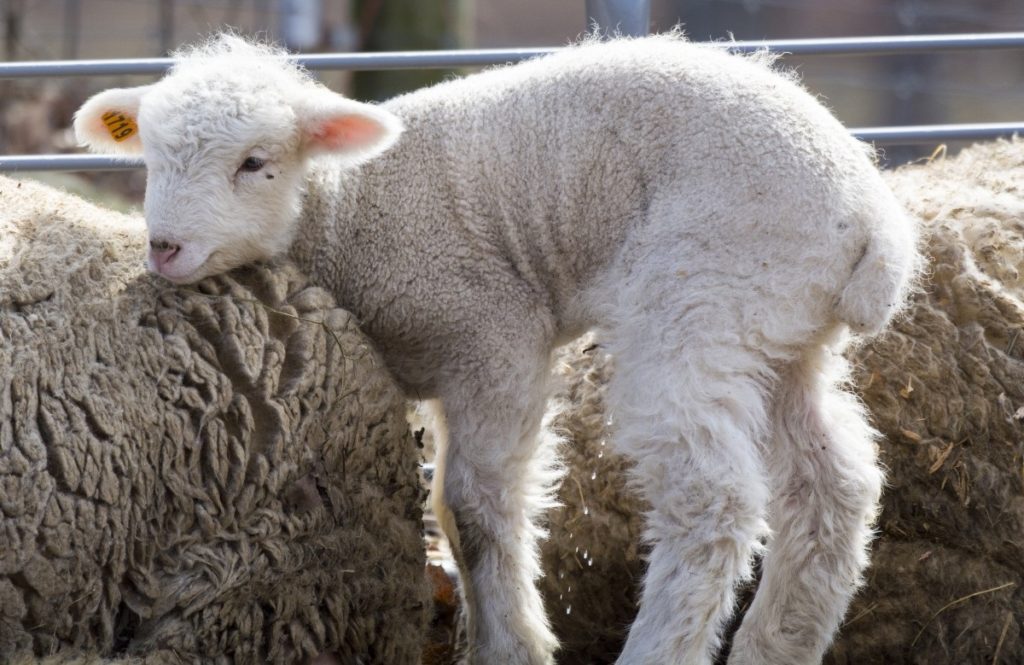Nou proiect de lege din partea Partidului pentru Animale împotriva sacrificiilor fără anestezic
20 martie 2018 – Partidul pentru Animale neerlandez propune un nou proiect de lege privind o obligație generală de a anestezia animalele înaintea sacrificării. În Țările de Jos există deja obligația de a anestezia animalele înaintea sacrificării acestora, însă se face o excepție pentru halal și cușer. Partidul pentru Animale dorește să elimine această excepție. Legea propusă prevede o perioadă de tranziție de cinci ani pentru a permite abatoarelor să facă ajustările necesare. După această perioadă de cinci ani, toate animalele din Țările de Jos trebuie să fie anesteziate înainte să fie sacrificate.

Sacrificarea fără anestezic a animalelor generează stres suplimentar și un nivel inacceptabil de suferință pentru animale. Vinerea trecută, Marianne Thieme, liderul Partidului pentru Animale neerlandez, a inițiat un nou proiect de lege pentru legalizarea obligației ca toate animalele sacrificate în Țările de Jos să fie anesteziate.
În urmă cu aproximativ 100 de ani, se legiferase deja faptul că animalele trebuie să fie anesteziate înainte de sacrificiu. S-a făcut însă o excepție pentru sacrificarea animalelor conform ritualelor. Există consens științific cu privire la stresul suplimentar și durerea cauzată animalelor prin sacrificarea fără anestezic. În anii trecuți s-au publicat numeroase rapoarte științifice care demonstrează că animalele sacrificate fără anestezic trec printr-un stres și o durere suplimentare în procesul de fixare, administrare a tăieturii și în perioada până când își pierd cunoștința. Asociația Medicilor Veterinari din Europa publică rezultatele acestor studii științifice și consideră că suferința suplimentară adusă animalelor este inadmisibilă.
Marianne Thieme: „Libertatea religioasă se oprește acolo unde începe suferința altora – fie că vorbim de oameni sau de animale. Un drept fundamental, precum libertatea religioasă, nu este niciodată absolut și trebuie întotdeauna să fie echilibrat cu restul drepturilor (fundamentale) și aspectele importante din societate. Protejarea animalelor de suferința și stresul evitabile se numără printre aceste aspecte importante.”
În alte țări, de exemplu în Australia, Norvegia sau Danemarca, s-a impus deja din acest motiv o interdicție asupra sacrificării fără anestezic. De asemenea, și în Belgia s-a impus o astfel de interdicție în 2017. În Noua Zeelandă, anestezierea anterioară este deja utilizată la scară largă la momentul sacrificării conform ritualelor.
Context
În 2011, o majoritate covârșitoare a parlamentului neerlandez a votat în favoarea unui proiect de lege inițiat de Marianne Thieme pentru interdicția totală asupra sacrificării fără anestezic. Propunerea a fost însă respinsă de senat.
Valoarea intrinsecă a animalelor este luată în considerare din ce în ce mai mult de societate și de legiuitor în privința tuturor deciziilor. Dezbaterea socială și politică este atât despre bunăstarea animalelor, cât și despre scopurile în care animalele pot fi folosite. În Țările de Jos de exemplu, aceasta a dus la interdicția folosirii animalelor sălbatice în circuri (2015) și interdicția de a crește nurci pentru producția de blană (2014). De asemenea, încă din anii ’90 s-a interzis, printre altele, testarea pe animale a produselor cosmetice și s-a redus drastic numărul de specii permise pentru vânătoarea din plăcere.
20 March 2018 – The Dutch Party for the Animals is going to put forward a new legislative proposal for a general obligation to stun animals before slaughter. In the Netherlands there already is a statutory obligation to stun animals before they are slaughtered but an exception is made for halal and kosher slaughter. The Party for the Animals wants to end that exception. The proposed bill will be subject to a transitional period of five years so that slaughterhouses have the chance to make the adjustments needed. Following these five years, all animals in the Netherlands will be stunned prior to slaughter.

Slaughtering animals without stunning leads to more stress and unacceptable animal suffering. Marianne Thieme, the Party Leader of the Dutch Party for the Animals, therefore submitted a new private member’s bill last Friday to make it a statutory duty to stun all animals slaughtered in the Netherlands.
Almost one hundred years ago, it was laid down by law that animals must be stunned prior to slaughter. An exception was made for ritual slaughter. A scientific consensus emerged in respect of the additional stress and the pain suffered by the animal because it was slaughtered without stunning. Over the past years, many scientific reports were published showing that animals which are slaughtered without stunning experience more stress and pain during the entire process of restraint, when their throat is cut and when they lose consciousness. The Federation of Veterinarians of Europe shared the outcomes of this scientific research and believes that additional animal suffering is unacceptable.
Marianne Thieme: “The freedom of religion ends where the suffering of others -humans and animals- starts. A fundamental right such as the freedom of religion is never absolute and must always be weighed against other (fundamental) rights and substantial interests of society. The protection of animals against avoidable pain and stress is a substantial interest.”
For this reason, slaughter without stunning was already banned in other countries, including in Australia, Norway and Denmark. In 2017, it was also decided to ban slaughter without stunning in Belgium. In New Zealand, prior stunning is already applied on a large scale when ritual slaughter is performed.
Background
In 2011, a large majority of the Dutch Parliament voted in favour of a previous legislative bill submitted by Marianne Thieme to completely ban slaughter without stunning. The bill was then rejected by the Senate.
The intrinsic value of animals is considered by society and by the legislator in all their decisions. The social and political debates are about providing animal welfare as well as the purpose for which animals may be used. In the Netherlands, for example, this led to a ban on using wild animals in circuses (2015), a ban on keeping and breeding minks for the production of fur (2014), and a ban on animal testing for cosmetics and the drastic reduction of the number of species for hobby hunting in the 90s.